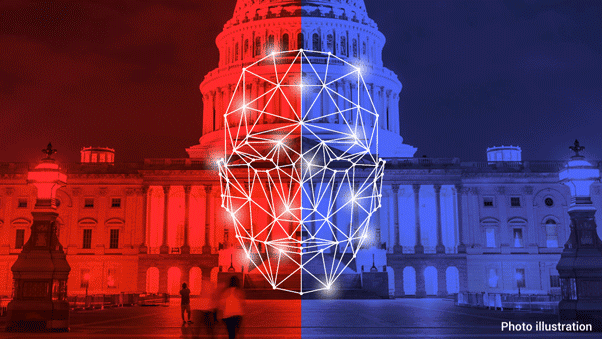The House AI task force believes it is unrealistic to anticipate prompt congressional action on AI, as stated in their 250-page report.
The bipartisan committee's long-awaited report is now available.

The House AI task force recommends a flexible regulatory framework for the technology in a 300-page report released Tuesday morning.
The report emphasized the importance of a light-touch approach to regulation and a thriving innovation ecosystem in maintaining the U.S.'s position as a leader in AI. The report stated that if these strengths are maintained, the country will continue to be the world's undisputed leader in responsible AI design, development, and deployment.
The task force, led by California Reps. Jay Obernolte and Ted Lieu, was commissioned by House leaders to address the rapidly advancing AI technology. However, the new report advised lawmakers to remain flexible to keep up with AI's evolving nature while providing several recommendations on how to approach a "carefully designed, durable policy framework."

"The report stated that it is unreasonable to expect Congress to pass final AI policy legislation this year, as policy will need to adapt and evolve with AI advancements."
The task force urged sector-specific regulators within federal agencies to utilize their existing authority to address AI use within their respective areas of expertise and the context of the AI's application. While promoting innovation, the report emphasized the importance of AI regulators prioritizing human impact and human freedom, with people at the forefront of their decision-making process.
The report advised federal offices to use AI to improve their administration and routine tasks, but cautioned them against relying too heavily on algorithm-based decision-making. It also recommended greater transparency in government AI use and the adoption of standards for its implementation. Additionally, the report acknowledged the potential negative consequences of AI on society, particularly in the context of civil rights.

"The report stated that improper use of AI can lead to legal violations and the deprivation of essential American rights. However, comprehending the limitations of AI models can help prevent harmful uses of AI."
The task force urged the government to establish guidelines for preventing biased decision-making in AI, and for agencies to be prepared to combat discriminatory outcomes. Additionally, the task force recommended increasing AI education in schools from kindergarten to high school to prepare the next generation for a world where AI is ubiquitous. For young adults, the task force suggested that the government facilitate partnerships between public and private sectors to create job opportunities in the AI industry.
The ubiquity of AI is evident in the various recommendations that have been made in the areas of health care, data privacy, and national security.
Despite the House AI Task Force's thorough process of interviews, meetings, and stakeholder roundtables, several crucial AI-related issues were not adequately addressed in the report. The Task Force recommends that members, committees of jurisdiction, and future congresses continue to explore opportunities and challenges related to AI.
Some of the concerns include export controls, election integrity, law enforcement, and transportation.
politics
You might also like
- California enclave announces it will cooperate with immigration officials and the Trump administration.
- Danish lawmaker urges Trump to abandon Greenland acquisition plan.
- Now, the Dem who labeled Trump an "existential threat to democracy" is obstructing his nominees.
- The lawyer for Hegseth criticizes the "dubious and inaccurate" testimony of his ex-sister-in-law.
- The House GOP outlines a plan to improve the healthcare system, emphasizing its impact on national defense.



















